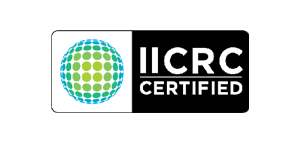Did you know that about 14,000 people in the U.S. face a water damage emergency at home or work every day? This shows how common water damage is and why it’s so important to act fast. Water damage can lead to serious health risks, like weakened foundations and mold exposure.
It can also cause electrical problems, such as shocks and fires. So, it’s key to check how bad the damage is and get expert advice before sleeping in a water-damaged home. Waiting too long can make things worse, putting your safety at risk.
Key Takeaways
- 14,000 Americans face water damage emergencies daily, highlighting its common occurrence.
- The structural integrity of your home could be severely compromised by water damage.
- Mold exposure is a significant health risk in water-damaged properties.
- Electrical systems in water-damaged homes pose hazards, including shocks and fires.
- Professional assessment is crucial before sleeping in a water-damaged house.
Understanding the Risks of Water Damage
Water damage is more than just a visual problem. It can harm the home’s structure and put people’s health at risk. One big issue is structural damage. Water can weaken walls, floors, and foundations, making them unstable over time.
Another big worry is the health risks from water damage. Damp places are perfect for mold and mildew to grow. These fungi can release harmful substances into the air. This is especially dangerous for people with breathing problems or allergies.
Water and electricity don’t go well together, leading to electrical system hazards. Water can damage electrical systems, raising the risk of electric shocks and fires. Getting help from professionals is crucial to stay safe.
To fight the dangers of water damage, quick and effective action is key. This keeps the home safe and protects its people from health and electrical dangers.
Health Concerns and Allergens in Water-Damaged Homes
Living in a home with water damage raises health risks. Mold, which thrives in damp places, is a big concern. Species like Aspergillus, Cladosporium, and Penicillium can cause allergies and serious health issues.
Other mold types, such as Stachybotrys and Chaetomium, lead to breathing problems like asthma. The air inside becomes unhealthy with mold spores floating around. This can make breathing harder and harm health over time.
Mold loves to hide in places like behind walls and under floors. Finding it can be hard. Checking the air quality and inspecting carefully is key to spotting and fixing the problem.
Act fast if you find water damage. Fixing it stops mold and allergens from spreading. This helps keep the air clean and protects everyone’s health. Taking steps early prevents more health issues and makes the home safer.
Evaluating the Extent of Water Damage Before Sleeping in Your Home
Before sleeping in a home with water damage, it’s crucial to check how bad the damage is. Look for signs like damp spots, mold, and strange smells. These signs show how much water damage there is.
Tools like moisture meters can measure how damp walls, floors, and ceilings are. Spotting these signs early helps understand the damage’s scope. Getting a professional to assess the damage is key for a full check-up and to know what to do next.
Fixing what you see is just the start. You should also seal leaks and use barriers to stop more water from getting in. Clean, disinfect, and use dehumidifiers to lessen the damage’s effects.
But, getting a pro to check the damage is the best way to know how bad it is. They can give detailed reports and suggest how to fix things to make your home safe again.
Precautions for Ensuring Your Safety in a Water-Damaged House
Living in a water-damaged house means you must follow important safety steps. Open windows and use air purifiers and dehumidifiers to prevent mold and bacteria growth. This keeps the air fresh and lowers health risks from dampness.
Wearing masks, gloves, and sometimes suits is key during cleanup. This gear protects you from harmful stuff and dangers. It’s even more important when dealing with mold, as it can harm your lungs.
Be very careful around electrical systems in a water-damaged house. They can be risky, causing shock or fires. Make sure to check and turn off electrical items and outlets before cleaning or fixing things.
Water damage can be complex and risky, often needing expert help. Working with professional restoration teams is best. They have the skills and tools to fix water damage safely, keeping everyone safe.
- Ensure proper ventilation using windows, air purifiers, and dehumidifiers.
- Wear personal protective equipment, including masks and gloves, during clean-up.
- Exercise caution around electrical systems to prevent shock and fire risks.
- Engage professional restoration services for thorough and safe remediation.
Conclusion
Water damage is a big threat to the safety and health of people living in homes. It can cause structural problems, electrical dangers, and health issues like mold and bacteria. So, making sure your home is safe is very important.
Before you think about staying in a house with water damage, get a professional to check it out first. They can spot issues you might not see.
Fixing water damage is crucial. Experts can handle the obvious problems and find hidden dangers. This keeps your home safe and healthy.
Don’t ignore water damage. Waiting too long can make things worse. Act fast, get experts to check it, and fix it right. This way, you and your family stay safe and healthy.





